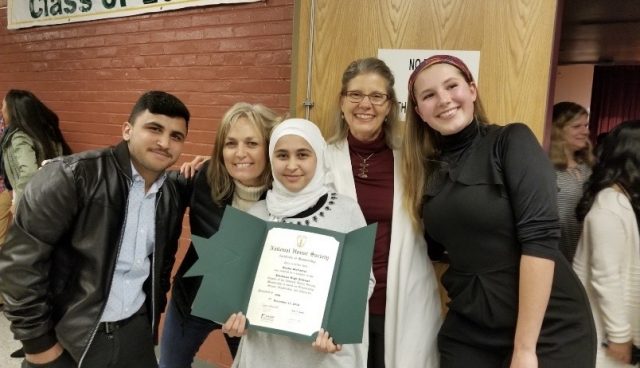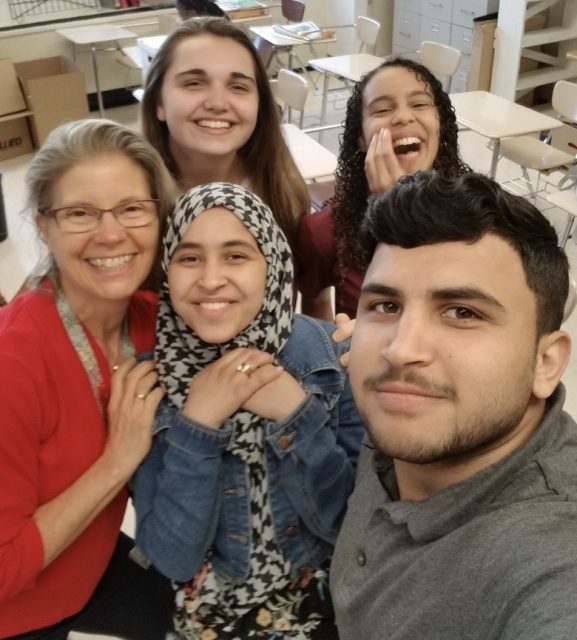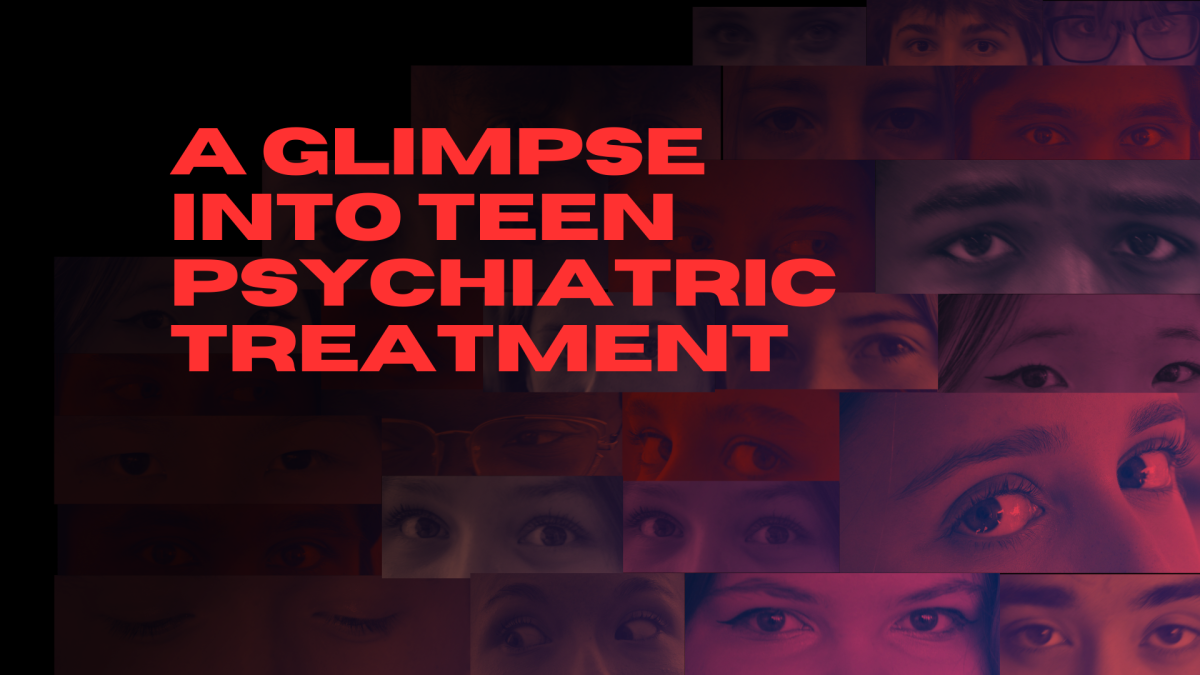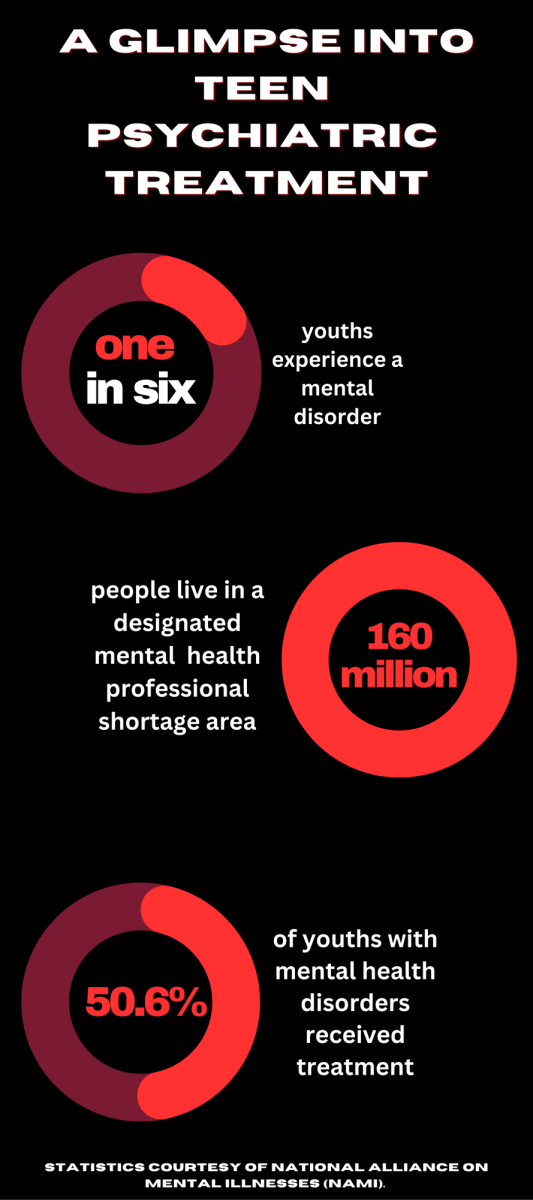For almost nine years, millions of Syrians have been forced to flee their homes in hope of a safer life elsewhere in the world. The Syrian refugee crisis has been the largest forced migration dilemma since World War II. According to The United Nations Refugee Agency, Syria currently has 6.2 million people displaced; worldwide, several countries share a combined total of over 5.6 million refugees. Thousands of Syrian children have lost — or are separated from — relatives and friends. The lives of these children are negatively impacted, as many go without schooling for the majority of their lives.
Emmaus High School seniors Rasha and Mohamad Alshamsi are two of the lucky over 22,000 refugees that have the opportunity for a new future in the United States. Syria is currently disappearing under the rubble of civil and political turmoil; however, before the destructiveness of war, to Rasha, Syria was an admirable place to live. She lived fruitfully with all the commodities and freedom she could dream of.

“[Life in Syria] was wonderful, it was so wonderful, until the war started,” Rasha said. “I grew up with everything I wanted. I had all my family around, we were having so much fun, and we were so happy. But then the war started, and my dad lost his job, and we lost everything and became very poor. From when I was born to when the war started, I had just a dream life.”
The Syrian conflicts began with anti-government protests, but quickly escalated into a full-scale civil war. Rebel brigades formed to assist with battling the government forces. To help suppress these violent demonstrations, government divisions employed police, military, and paramilitary forces. This government retaliation induced further turmoil and increased violence. Not only was the government and its citizens part of the violence, but the extremist group ISIS was as well. ISIS surfaced from the remnants of another terrorist group, Al-Qaeda, and carried out attacks using the unstable Syrian government to their advantage. Mohamad and Rasha’s family suffered through this terror and ultimately fled.
“[The war] was very challenging, and I think things are different now. [It was] probably more [violent] when I left my country, it was really bad, [and] everyone was killing each other,” Mohamad said. “And when I lived back there, there was ISIS. It was a hard time, I was young―13 years old. I was forced to leave my city. I moved in 2014 because of ISIS. They started taking over properties and kids to train them and make them soldiers.”
Syrians have been fleeing to different countries worldwide. One path citizens may choose to flee by is to the north toward Jordan. This trek is very dangerous, and many refugees get shot or injured attempting to cross; the Alshamsi family, along with roughly 100 other people, completed this journey. Once reaching their destination in Jordan, they waited for the Jordan Border Guard to rescue them.
For three years, the Alshamsis dwelled in a refugee camp in Jordan. Rasha and Mohamad, third graders at the time, attended school in their foster country. Eventually, after three years, their family received a call from the United Nations informing them of their opportunity to move to America.
“When I [came] here, I didn’t know English; I didn’t know anything, like, nothing,” Rasha said. “It was hard because two months we were here and had so much going on because no one in my family knows how to speak English or respond in English.”

When the Alshamsis first arrived, they stayed in Allentown at a church with the help of refugee aid for 90 days. Their family searched for a home, but none met what they were looking for. A friend of Rasha’s recommended they rent a house in the East Penn School District and attend school at Emmaus High School, which is what they did. Rasha and Mohamad began school at Emmaus halfway through their freshman year. Starting school in a foreign country with very little understanding of English was difficult for them. They began lessons with EHS’s English as a Second Language (ESL) teacher Tammy Kita, who assisted them with school work and learning English.
“I [came] to school, and the teacher is talking, and I don’t know what she’s talking about,” Rasha said. “I come home, and I sit in a corner for like two to three hours and cry, because I don’t have any idea what she’s talking about. It’s hard when someone’s talking and you don’t understand what they’re talking about. After these days, I realized that why [I’m] crying, [so] I started learning English by myself. I got to school and finished freshman year with surprising grades actually.”
Kita’s interest in linguistics began when she was a Peace Corps volunteer in the Caribbean nation of Grenada. She later became a reading specialist and then taught English to students in Japan. After a few years of teaching in Japan, she returned to the U.S. and taught ESL to adults at Northampton Community College and Lehigh University. Around this time, Kita received her ESL certificate, and eventually became employed at Emmaus.
“The first thing that we try to do for any student is we try to make sure that we have a welcoming environment for them here,” Kita said. “And we try to hook them up with a buddy, if it’s possible that we could get a student with the same language. We try to do that, but that’s not, of course, always possible. The biggest thing is we want them to feel like ESL is a good place for them to be. Even if they don’t know a lot of languages, it can still be a good place. They can still feel like they have friends.”
Unfortunately, some Syrian refugees have not been granted the opportunity to travel to a new country to start a new life; however, not every refugee desires to leave the camps, as many hope their country will become safe again. Rasha appreciates everything she has in her life right now, but is amazed at how strong the refugees’ contentment and optimism is.
“If we were to talk about Jordan and the people still there in the camps, [they] have limits,” Rasha said. “They cannot go into the city, but they live more than the people that have escaped. They know how to live. I am here, I have everything now; I have a car, I have school, I have everything—such a good environment, but I am not that happy. But when I think about them, they have nothing and still they [are] happy. They [would] rather stay in [the] camp then go to the United States or Canada. I think they are stronger than me, stronger than anyone. They just need a little help to stay alive. Their family, their siblings, their son, their daughter, [are] dying, but still, they’re strong.”
In its ninth year, the Syrian Civil War has brought heartache and hopelessness to millions of refugees. The nation has been torn apart. Hundreds of thousands have been killed, and lives have been ravaged. Mohamad and Rasha have been forced to restart their lives multiple times in different countries. They are grateful to their family, Tammy Kita, and everyone else who has assisted in their transition to the U.S.





